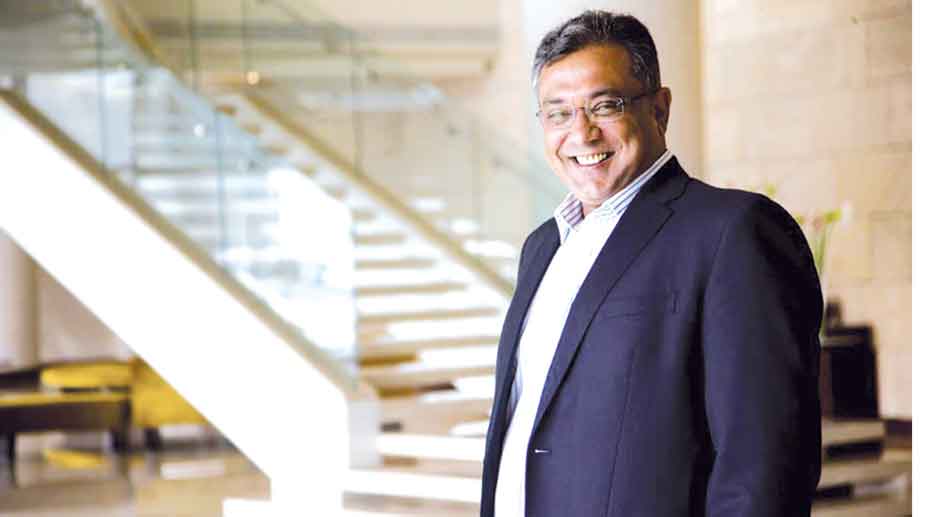Career opportunities in hospitality: Navigating international placements
In the dynamic and ever-expanding world of hospitality, global mobility and career opportunities have become increasingly accessible and attractive for Indian youths.

Dilip-Puri
A stalwart in the hospitality industry, Dilip Puri aims to transform and shape the future of the Indian hospitality industry. The former managing director and regional vice-president of Starwood Hotels and Resorts South Asia, has been recognised as one of the country’s leading thought leaders.
With his new venture —the Indian School of Hospitality he plans to provide both theoretical and practical knowledge to ensure the development of an education sector that can sustain the requirements of the dynamic industry. Excerpts from an interview:
Advertisement
The hospitality and tourism industry is experiencing exponential growth, bringing with it an influx of job openings and possibilities of tremendous economic expansion. With the rise of domestic travel, increasing consumerism, the emergence of new consumer markets and a richer variety of offerings than ever before, the Indian hospitality industry is growing at a rapid pace and doesn’t show any signs of slowing down.
Advertisement
This type of advancement within the landscape is being experienced worldwide with travel and tourism’s total contribution to the world GDP coming in at an incredible 10 per cent. To sustain and encourage growth, the need for highly skilled, competent talent is bigger than ever before. According to the union budget 2017 -2018, the industry is expected to generate 13.45 million jobs across its sub-segments — a requirement that provides tremendous personal and professional opportunities for today’s youth.
Q.You have mentioned the need to bridge the gap that exists between hospitality education in India and in other countries. Could you elaborate?
The overall landscape has seen minimal change over the decades, which is especially problematic for education that is meant to prepare you for an industry that changes as rapidly as hospitality does.
Today’s students want more flexibility. They need skills that will give them more freedom to build their future and explore opportunities. It’s incredibly important to identify their needs within the global scenario and provide them an education that is tailor-made for the rapidly changing world.
Q.Why do you think this gap exists in the first place? Where does Indian School of Hospitality fit into this picture?
The climate of hospitality is vibrant with today’s technologies, the challenges and expectations of the industry never cease to change and evolve. In such an environment, it can be a real challenge to produce quality talent if the curriculum or methods they’re learning from aren’t customised to enable students to adapt, rationalise and react to challenges.
We want to disrupt hospitality education by redefining and reimagining the way education is delivered. By implementing up-to-date and relevant teaching techniques, and by creating a future-conscious curriculum, we want to create an educational experience that’s not just for today, but can stand up to tomorrow’s challenges as well. Our entire philosophy is to provide students with both the academic and life skills they need to help them succeed throughout their careers and lives.
We envision our curriculum design to be a global benchmark of hospitality education in the near future. We have entered into a strategic partnership with Lausanne Hospitality Consulting for curriculum development and faculty training. We have partnered with LHC in preparation for an academic certification by Ecole hôtelière de Lausanne, the world’s oldest and top ranked hospitality management higher education institution.
Q.What are the major challenges being faced by the hospitality sector? What do you think should be done to resolve these issues?
One of the major challenges currently faced by the industry is finding talent. Most large hotel companies today have to re-invest time in training the candidate after they graduate through some sort of management training programmes. With our four-year hospitality management programme, we aim to help companies cut out that period and induct them directly into roles they would otherwise get after two additional years.
Q.Where do you think the future of this sector lies? And where does India find a place for itself?
India is one of the most attractive future markets for the hospitality sector and is observing strong
and steady growth. With the emergence of disruptive technologies, changes in the landscape and both business and consumer expectations, the future will be defined by the brands supporting the current trends that are re-shaping the hospitality sector.
Significant players will need to adapt to global offerings and customise to match the local needs by providing a distinctive experience to end consumers. On the forefront of this change, we have the ability to offer quality education with new concepts and practical training. And through our platform, we are setting a benchmark by building a momentum of growth; creating a talent pool of students who will step out as the professional leaders of tomorrow.
Advertisement
In the dynamic and ever-expanding world of hospitality, global mobility and career opportunities have become increasingly accessible and attractive for Indian youths.
By bridging the gap between the culinary and hospitality domains, educational institutions are cultivating a new generation of culinary experts who possess the diverse proficiencies necessary to flourish in the contemporary competitive culinary landscape.
Over the next decade, travel and tourism is forecast to successfully continue its rapid expansion, overtaking huge global economic sectors such as communications, manufacturing, retail and distribution among others.
Advertisement
